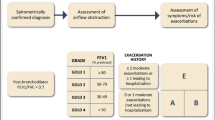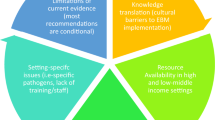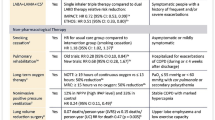Abstract
Purpose
Codeine is a narcotic antitussive often considered for managing patients with refractory or unexplained chronic cough. This study aimed to evaluate the proportion and characteristics of patients who responded to codeine treatment in real-world practice.
Methods
Data from the Korean Chronic Cough Registry, a multicenter prospective cohort study, were analyzed. Physicians assessed the response to codeine based on the timing and degree of improvement after treatment initiation. Follow-up assessments included the Leicester Cough Questionnaire and cough severity visual analog scale at six months. In a subset of subjects, objective cough frequency was evaluated following the initiation of codeine treatment.
Results
Of 305 patients, 124 (40.7%) responded to treatments based on anatomic diagnostic protocols, while 181 (59.3%) remained unexplained or refractory to etiological treatments. Fifty-one subjects (16.7%) were classified as codeine treatment responders (those showing a rapid and clear response), 57 (18.7%) as partial responders, and 62 (20.3%) as non-responders. Codeine responders showed rapid improvement in objective cough frequency and severity scores within a week of the treatment. At 6 months, responders showed significantly improved scores in cough scores, compared to non-responders. Several baseline parameters were associated with a more favorable treatment response, including older age, non-productive cough, and the absence of heartburn.
Conclusions
Approximately 60% of chronic cough patients in specialist clinics may require antitussive drugs. While codeine benefits some, only a limited proportion (about 20%) of patients may experience rapid and significant improvement. This underscores the urgent need for new antitussive drugs to address these unmet clinical needs.



Similar content being viewed by others
Data Availability
No datasets were generated or analysed during the current study.
Abbreviations
- RUCC:
-
Refractory or unexplained chronic cough
- LCQ:
-
Leicester Cough Questionnaire
- VAS:
-
Visual analog scale
- CHQ:
-
Cough Hypersensitivity Questionnaire
- PROs:
-
Patient-reported outcomes
- GERD:
-
Gastroesophageal reflux disease
- UACS:
-
Upper airway cough syndrome
- FeNO:
-
Fractional exhaled nitric oxide
References
Eddy NB, Friebel H, Hahn KJ, Halbach H (1968) Codeine and its alternates for pain and cough relief. I. Codeine, exclusive of its antitussive action. Bull World Health Organ 38(5):673–741
Song WJ, Yu CJ, Kang SH (2022) Cough characteristics and healthcare journeys of chronic cough patients in community-based populations in South Korea and Taiwan. Lung 200(6):725–736
Zeiger RS, Schatz M, Butler RK, Weaver JP, Bali V, Chen W (2020) Burden of specialist-diagnosed chronic cough in adults. J Allergy Clin Immunol Pract 8(5):1645–1657
Jo EJ, Lee JH, Won HK et al (2023) Baseline cohort profile of the Korean chronic cough registry: a multicenter, prospective observational study. Lung 201(5):477–188
Oh JY, Kang YR, An J et al (2023) Codeine prescription pattern and treatment responses in patients with chronic cough: a routinely collected institutional database analysis. J Thorac Dis 15(4):2344–2354
Aylward M, Maddock J, Davies DE, Protheroe DA, Leideman T (1984) Dextromethorphan and codeine: comparison of plasma kinetics and antitussive effects. Eur J Respir Dis 65(4):283–291
Sevelius H, Colmore JP (1966) Objective assessment of antitussive agents in patients with chronic cough. J New Drugs 6(4):216–223
Sevelius H, McCoy JF, Colmore JP (1971) Dose response to codeine in patients with chronic cough. Clin Pharmacol Ther 12(3):449–455
Lee SP, Lee SM, Lee BJ, Kang SY (2022) Effectiveness and safety of codeine and levodropropizine in patients with chronic cough. J Korean Med Sci 37(36):e275
Smith J, Owen E, Earis J, Woodcock A (2006) Effect of codeine on objective measurement of cough in chronic obstructive pulmonary disease. J Allergy Clin Immunol 117(4):831–835
Morice AH, Menon MS, Mulrennan SA, Everett CF, Wright C, Jackson J, Thompson R (2007) Opiate therapy in chronic cough. Am J Respir Crit Care Med 175(4):312–315
Maher TM, Avram C, Bortey E, Hart SP, Hirani N, Molyneux PL, Porter JC, Smith JA, Sciascia T (2023) Nalbuphine tablets for cough in patients with idiopathic pulmonary fibrosis. NEJM Evidence. https://doi.org/10.1056/EVIDoa2300083
Crews KR, Gaedigk A, Dunnenberger HM et al (2014) Clinical pharmacogenetics implementation consortium guidelines for cytochrome P450 2D6 genotype and codeine therapy: 2014 update. Clin Pharmacol Ther 95(4):376–382
Song DJ, Song WJ, Kwon JW et al (2018) KAAACI evidence-based clinical practice guidelines for chronic cough in adults and children in Korea. Allergy Asthma Immunol Res 10(6):591–613
Song WJ, Chung KF (2020) Pharmacotherapeutic options for chronic refractory cough. Expert Opin Pharmacother 21(11):1345–1358
Al-Sheklly B, Mitchell J, Issa B, Badri H, Satia I, Collier T, Sen S, Ford JW, Corfield D, Smith J (2017) Randomised control trial quantifying the efficacy of low dose morphine in a responder group of patients with refractory chronic cough. In: British Thoracic Society Winter Meeting. BMJ Publishing Group Ltd.
Irwin RS, French CL, Chang AB, Altman KW, Adams TM, Azoulay E, Barker AF, Birring SS, Blackhall F, Bolser DC (2018) Classification of cough as a symptom in adults and management algorithms: CHEST guideline and expert panel report. Chest 153(1):196–209
Morice AH, Millqvist E, Bieksiene K et al (2020) ERS guidelines on the diagnosis and treatment of chronic cough in adults and children. Eur Respir J 55(1):1901136
Kwon JW, Moon JY, Kim SH et al (2015) Reliability and validity of a korean version of the leicester cough questionnaire. Allergy Asthma Immunol Res 7(3):230–233
Won HK, Kang SY, Kang Y et al (2019) Cough-related laryngeal sensations and triggers in adults with chronic cough: symptom profile and impact. Allergy Asthma Immunol Res 11(5):622–631
Rhatigan K, Hirons B, Kesavan H, Turner RD, Ebelthite C, Hull JH, Jolley CJ, Birring SS, Cho PSP (2023) Patient global impression of severity scale in chronic cough: validation and formulation of symptom severity categories. J Allergy Clin Immunol Pract 11(12):3706–3712
Lee SE, Rudd M, Kim TH, Oh JY, Lee JH, Jover L, Small PM, Chung KF, Song WJ (2023) Feasibility and utility of a smartphone application-based longitudinal cough monitoring in chronic cough patients in a real-world setting. Lung 201(6):555–564
Morice AH, Jakes AD, Faruqi S et al (2014) A worldwide survey of chronic cough: a manifestation of enhanced somatosensory response. Eur Respir J 44(5):1149–1155
Song WJ, Dupont L, Birring SS et al (2023) Consensus goals and standards for specialist cough clinics: the NEUROCOUGH international Delphi study. ERJ Open Res 9(6):00618–02023
Lee Y, Lee JH, Park SY, Lee JH, Kim JH, Kim HJ, Kim SH, Chung KF, Song WJ (2023) Roles of real-world evidence in severe asthma treatment: challenges and opportunities. ERJ Open Res 9(2):00248–02022
Eccles R (2020) The powerful placebo effect in cough: relevance to treatment and clinical trials. Lung 198(1):13–21
Acknowledgements
The members contributing to the study include (in alphabetical order): Jin An, Kyung Hee University, Seoul, Korea; Surinder S. Birring, King’s College London, London, UK; Yoon-Seok Chang, Seoul National University Bundang Hospital, Seoul National University College of Medicine, Seongnam, Korea; Sang-Heon Cho, Seoul National University Hospital, Seoul, Korea; Kian Fan Chung, Imperial College London, London, UK; Eun-Jung Jo, School of Medicine, Pusan National University, Busan, Korea; Noeul Kang, Samsung Medical Center, Sungkyunkwan University School of Medicine, Seoul, Korea; Sung-Yoon Kang, Gachon University Gil Medical Center, Incheon, Korea; Byung-Keun Kim, Korea University College of Medicine, Seoul, Korea; Mi-Yeong Kim, Busan Paik Hospital, Inje University College of Medicine, Busan, Korea; Min-Hye Kim, College of Medicine, Ewha Womans University, Seoul, Korea; Sae-Hoon Kim, Seoul National University Bundang Hospital, Seoul National University College of Medicine, Seongnam, Korea; Sang-Heon Kim, Hanyang University College of Medicine, Seoul, Korea; Sang-Hoon Kim, Eulji University College of Medicine, Seoul, Korea; Young-Chan Kim, Seoul National University Hospital, Seoul, Korea; Hyouk-Soo Kwon, Asan Medical Center, University of Ulsan College of Medicine, Seoul, Korea; Byung-Jae Lee, Samsung Medical Center, Sungkyunkwan University School of Medicine, Seoul, Korea; Ji-Ho Lee, Yonsei University Wonju College of Medicine, Wonju, Korea; Ji-Hyang Lee, Asan Medical Center, University of Ulsan College of Medicine, Seoul, Korea; Hwa Young Lee, Seoul St Mary’s Hospital, College of Medicine, The Catholic University of Korea, Seoul, Korea; Seung-Eun Lee, Pusan National University Yangsan Hospital, Yangsan, Korea; Ji-Yong Moon, Hanyang University College of Medicine, Seoul, Korea; Ji-Yoon Oh, Asan Medical Center, University of Ulsan College of Medicine, Seoul, Korea; Han-Ki Park, Kyungpook National University Chilgok Hospital, School of Medicine, Kyungpook National University, Daegu, Korea; So-Young Park, Chung-Ang University College of Medicine, Seoul, Korea; Ji-Su Shim, College of Medicine, Ewha Womans University, Seoul, Korea; Woo-Jung Song, Asan Medical Center, University of Ulsan College of Medicine, Seoul, Korea; Ha-Kyeong Won, Veterans Health Service Medical Center, Seoul, Korea; Youngsang Yoo, Gangneung Asan Hospital, University of Ulsan College of Medicine, Gangneung, Korea.
Funding
The study was supported in part by a research grant from the Investigator-Initiated Studies Program of Merck Sharp & Dohme Corp.. The opinions expressed in this paper are those of the authors and do not necessarily represent those of Merck Sharp & Dohme Corp.
Author information
Authors and Affiliations
Consortia
Contributions
Each of the authors confirms that this manuscript has not been previously published and is not currently under consideration by any other journal. Additionally, all authors have approved the contents of this paper and have agreed to the journal submission policies. WJS contributed to the design of the study. JYO and WJS performed the main analysis and wrote the original draft. SYK, NK, HKW, EJJ, SEL, JHL, JSS, YCK, YSY, JA, HYL, SYP, MYK, JHL and MHK assisted in the analysis and interpretation of the data. BKK, HKP, SHK, SHK, YSC, SHK, BJL, KFC, and SHC collected the data. All authors reviewed the manuscript.
Corresponding author
Ethics declarations
Conflict of interest
WJS declares grants from Merck Sharp & Dohme Corp. and AstraZeneca, consulting fees from Merck, AstraZeneca, Shionogi, Bellus, and GSK, and lecture fees from Merck, AstraZeneca, GSK, Sanofi, and Novartis. Other authors declare that they have no competing interests.
Additional information
Publisher's Note
Springer Nature remains neutral with regard to jurisdictional claims in published maps and institutional affiliations.
Collaborators of the of the Korean Chronic Cough Registry Study Group are listed in Acknowledgment Section.
Rights and permissions
Springer Nature or its licensor (e.g. a society or other partner) holds exclusive rights to this article under a publishing agreement with the author(s) or other rightsholder(s); author self-archiving of the accepted manuscript version of this article is solely governed by the terms of such publishing agreement and applicable law.
About this article
Cite this article
Oh, JY., Kang, SY., Kang, N. et al. Characterization of Codeine Treatment Responders Among Patients with Refractory or Unexplained Chronic Cough: A Prospective Real-World Cohort Study. Lung 202, 97–106 (2024). https://doi.org/10.1007/s00408-024-00674-6
Received:
Accepted:
Published:
Issue Date:
DOI: https://doi.org/10.1007/s00408-024-00674-6




